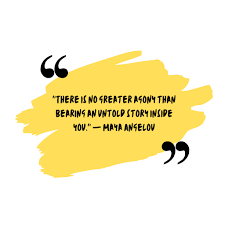
Understanding the Importance of a Quote
Quotes play a significant role in our lives, serving as sources of inspiration, motivation, and guidance. Whether they come from famous figures, literary works, or even our own experiences, quotes have the power to encapsulate profound ideas and emotions in just a few words.
One of the key benefits of a quote is its ability to provide perspective and insight. A well-chosen quote can offer a fresh viewpoint on a situation, helping us see things in a new light or find clarity amidst confusion. It can serve as a reminder of our values, beliefs, and goals, guiding us on our journey towards personal growth and fulfilment.
Moreover, quotes have the power to evoke emotions and stir the soul. They can capture the essence of love, courage, resilience, or any other human experience with eloquence and poignancy. Whether we turn to quotes for comfort during difficult times or for celebration during moments of joy, they have a way of resonating with us on a deep emotional level.
Additionally, quotes have the capacity to connect us with others. By sharing meaningful quotes with friends, family, or colleagues, we create opportunities for dialogue and reflection. Quotes can spark conversations, foster empathy, and build bridges between individuals who may otherwise have little in common.
In essence, a quote is more than just words on a page – it is a window into the human experience. It has the power to inspire us to be better versions of ourselves, to connect us with others on a deeper level, and to remind us of what truly matters in life. So next time you come across a quote that resonates with you, take a moment to savour its wisdom and let it enrich your journey.
Mastering the Art of Quoting: 5 Essential Tips for Effective Use
- Use quotation marks to set off a direct quote from someone.
- Always attribute quotes to the original speaker or writer.
- Ensure that the quote is accurate and not taken out of context.
- Consider the relevance and impact of the quote within your text.
- Use quotes sparingly and strategically to enhance your writing.
Use quotation marks to set off a direct quote from someone.
When incorporating a direct quote from someone into your writing, it is essential to use quotation marks to set it off. This simple punctuation mark serves as a visual cue to the reader, indicating that the words enclosed within the quotation marks are not your own but are directly attributed to another source. By using quotation marks appropriately, you not only give credit to the original speaker but also maintain clarity and accuracy in your writing. This practice helps distinguish between your own words and those of others, ensuring that the quoted material is presented accurately and respectfully within the context of your work.
Always attribute quotes to the original speaker or writer.
It is essential to always attribute quotes to the original speaker or writer as a mark of respect and integrity. By acknowledging the source of a quote, we honour the creativity, wisdom, or insight of the individual who first uttered or penned those words. Proper attribution not only gives credit where it is due but also helps maintain accuracy and credibility in our communications. It allows us to uphold ethical standards and ensure that the context and meaning of the quote remain intact, preserving its authenticity for future generations to appreciate and learn from.
Ensure that the quote is accurate and not taken out of context.
It is crucial to ensure that the quote is accurate and not taken out of context. By verifying the authenticity and context of a quote, we honour the original intention of the speaker or writer and uphold the integrity of their words. Misquoting or misinterpreting a statement can lead to misunderstandings and misrepresentations, potentially distorting the message conveyed. Therefore, by diligently confirming the accuracy and context of a quote, we uphold truthfulness and respect for the original source, allowing its intended meaning to shine through with clarity and authenticity.
Consider the relevance and impact of the quote within your text.
When incorporating a quote into your text, it is essential to consider its relevance and impact on the overall message you aim to convey. A well-chosen quote should seamlessly complement your writing, adding depth and resonance to your ideas. By carefully evaluating how the quote aligns with the themes and tone of your text, you can ensure that it enhances rather than detracts from the narrative. Additionally, reflecting on the potential impact of the quote on your readers can help you gauge its effectiveness in engaging and resonating with your audience. Ultimately, by thoughtfully integrating quotes that are pertinent and impactful, you can elevate the quality and persuasiveness of your writing.
Use quotes sparingly and strategically to enhance your writing.
Using quotes sparingly and strategically can significantly enhance the quality of your writing. By incorporating quotes thoughtfully, you can add depth, credibility, and a unique perspective to your work. Selecting the right quote at the right moment can amplify your message, evoke emotion, and engage your readers in a meaningful way. Remember that each quote should serve a specific purpose and contribute to the overall coherence of your writing. When used effectively, quotes have the power to elevate your writing to new heights and leave a lasting impact on your audience.
